January to March
From Nollaig na mBan – Women’s Christmas – on 6th January to Mother's Day the end of March.
Celebrations include Burns Night in Scotland, St. Brigids' Eve with it's many traditions and customs and an explanation of the mysterious and dangerous Ides of March.
More information by Anne on the traditions surrounding Imbolc can be found at Bridget's Eve and Day - Her Life, Wells and Customs
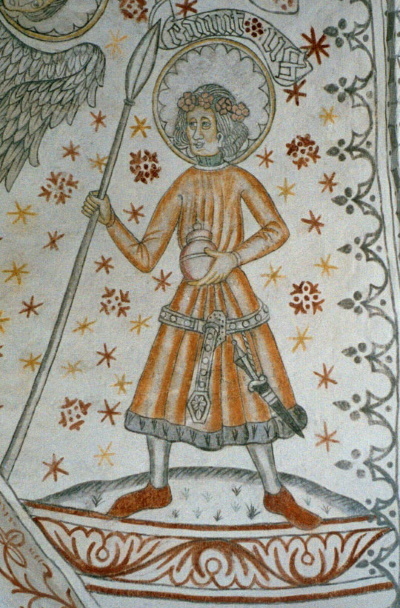 | 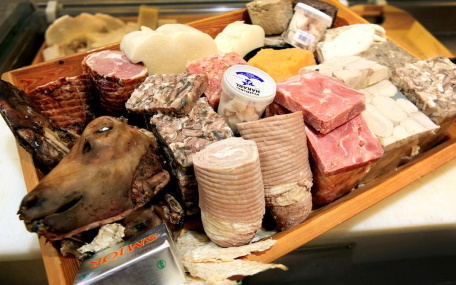 |
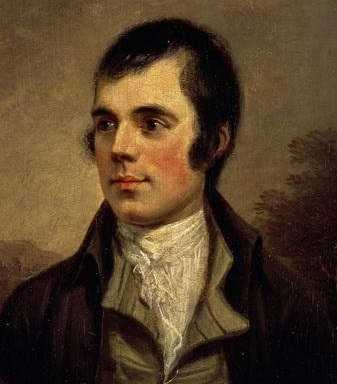 |
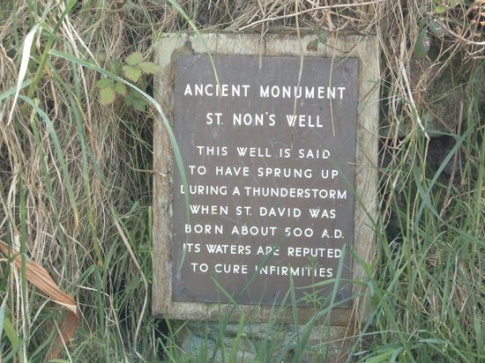 | 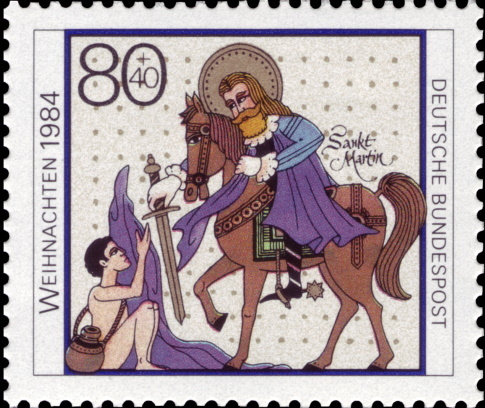 | 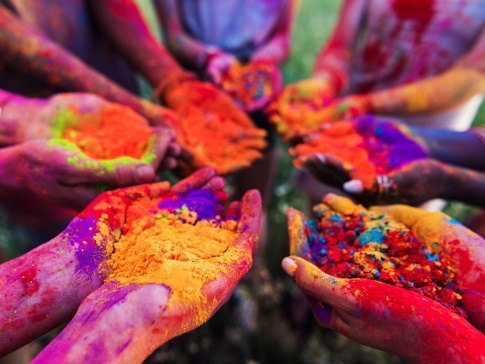 |
New Year's Traditions - Kirkwall Ba' & Handsel Monday
The days between Solstice and the New Year are a magical period when anything is possible.
When is Twelfth Night?
There is the debate... 6th January is also Epiphany, Oiche Nollaig na Mban and La Bafana... links are in the article
6th January - Chalking the Door
For 2024 this is what you will write on your door in chalk: 20 + C + M + B + 24
6th January - the Feast of the Epiphany
Epiphany is from Greek language meaning 'manifestation or appearance'.
6th January - Oiche Nollaig na Mban
This is the traditional day when the women put their feet up after the busy Christmas while the men donned the aprons and did all the woman's chores for the day
6th January - La Befana and Twelfth Night
La Befana is known as a wise and magical woman who arrives flying on a broom or sometimes even on a donkey
Early January - Plough Monday
This is the traditional start of the English agricultural year
11th January - Burning the Clavie
Burghead decided to celebrate New Year’s on both the 1st and the 11th of January, getting the best of both worlds.
13th January - Saint Knut's Day & Lohri
It is customary to knock on the walls to scare out any Jultomten - Christmas goats - who are hiding in the house!
15th January - St Ita’s day
The foster mother of the saints of Erin - sometimes called "the white sun of the women of Munster" or the"Brigid of Munster".
19th January - Popcorn Day
Do you know that Popcorn can ‘jump’up to 3 feet in the air? Ceremonial uses in North America and a Swedish Chef
19th January - Timkat
Ethiopian Epiphany
25th January - Burns Night
The haggis is traditionally served with mashed potatoes (tatties) and mashed turnips (neeps).
25th January - St Dwynwen’s Day
Celebrate the Welsh St. Valentine on 25th January - love spoons are the gift of the day
27th January - Feast of Lí Ban, the Irish Mermaid Saint
Eochaidh’s palace and lands were flooded, drowning all who lived there and forming the great body of water we know today as Lough Neagh. Only Lí Ban survived, along with her dog, in an underwater chamber in the lake for a year.
28th January - Up Helly Aa - lightening of the year
The biggest secret of all is what the head of the festival, the 'Guizer Jarl', will wear and which character from the Norse Sagas he'll represent.
29th January - St Bláth or Bláthnaid of Kildare
It is said that, under the care of St. Bláth, the bread and bacon at St. Brigid's table were better than a banquet elsewhere.
31st January - Bridget’s Eve - Brat Bríd
It’s Bridget’s Eve so remember to leave out your Brat Bríd (a strip of cloth/ribbon/scarf/ handkerchief) tonight. Read more here.....
Chinese New Year - Lunar New Year - Spring Festival
Porridge should not be eaten, because it is considered that only poor people have porridge for breakfast, and people don't want to start the year "poor" as this is a bad omen.
end January - Thorrablot
Thorrablot takes place in the coldest dark days of the year, and it's interesting to keep in mind that many of the foods served are actually the smoked/pickled produce of the previous year.
end January - Dísablót
The Dísablót is held in the Nordic Countries around the time of the Celtic Imbolc.
First Lunar Month - Losar Tibetan Festival
With roots in pre-Buddhist Bon religion, every winter spirits and deities were given offerings, later becoming a farmers’ festival during the blossoming of the apricot trees.
Pancake Tuesday and Ash Wednesday - the start of Lent
Ash Wednesday is exactly 46 days before Easter Sunday - the connection between pancakes and Shrove Tuesday dates back to when fasting in Lent was strictly observed.
1st February - St. Seiriol
Saint Cybi would walk from Holyhead, facing the rising sun in the morning and setting sun in the evening. Seiriol, travelling in the opposite direction, from Penmon, would have his back to the sun. Thus, he was known as Seiriol Wyn (Seiriol the Fair).
2nd February- Candlemas
The festival is called Candlemas because this was the day that all the Church's candles for the year were blessed. A festival of lights.
3rd February - Feast of St Blaise
The day to head to church to have your throat blessed
11th February - Feast of St. Gobnait
A saint of bees, nine deer and a healing ribbon
14th February - St. Valentine's Day
Valentine greetings were popular as far back as the Middle Ages, though written Valentines didn’t begin to appear until after 1400.
29th February - Leap Year Day
In Ireland, there is an old Irish legend, that St Brigid struck a deal with St Patrick to allow women to propose to men – and not just the other way around – every four years.
First Full Moon of March - Holi
Holi is popularly known as the Hindu "festival of spring", the "festival of colours", or the "festival of love".
Mardi Gras
Mardi Gras is French for "Fat Tuesday", reflecting the practice of the last night of eating rich, fatty foods before the ritual Lenten Sacrifices and fasting of the Lenten season.
1st March - Saint David's Day
David became known as Dewi Dyfrwr (‘David the water drinker’) because of his modest monk’s diet of bread and water. Even meat and beer were forbidden.
5th March - St Piran’s day in Cornwall
St Piran miraculously floated across the water from Ireland attached to a stone, landing at Perran Beach, Perranporth
8th March - St Sennan
The legend of "St. Senanus and the Lady", Tom Moore's lyric, says that no woman was allowed to enter Inis Cathaigh. Bell, monster and more.
15th March - Ides of March & Anna Perenna Goddess
The Romans calculated the days of the month by counting back from three fixed points of the month. The death of Julius Caesar and feast day of Anna Perenna, ancient goddess.
17th March - St Patrick’s Day
St. Patrick’s Day is Lá Fhéile Pádraig. Slane, Tara and Croagh Patrick all feature in the story of the man often credited with bringing Christianity to Ireland. Read why he was not the first and some of the legends that have been attached to his story.
18th March - Sheelah's Day
One of the last places on earth to have it as a major contemporary festival is Newfoundland, Canada.
19th March - St. Joseph's Day
Joseph's staff is often portrayed with flowers as his alone bloomed, identifying him as divinely chosen
22nd March - Feast of St. Darerca
Saint Darerca is said to be the sister of St Patrick and she is the patroness of Valentia Island.
24th March - Old Feast of St Gabriel
In the apocalyptic Books of Enoch “the four great archangels” are Michael, Uriel, Raphael, and Gabriel.
25th March - Latha na Cailliche
She might be a 'Gloomy Old Woman' but is respected (and feared) in legends and folklore in Scotland, Isle of Man and Ireland.
end March - Earth Hour
Our connection to Earth and nature is undeniable.
end March - Time to Spring forward
Time is a strange man-made thing.
end March - Mother's Day
“I’ll to thee a Simnel bring, gainst thou go’st a'Mothering," Mother's Day, aka Mothering Sunday, has it's roots in the church and is unrelated to the American holiday and the date varies each year.





